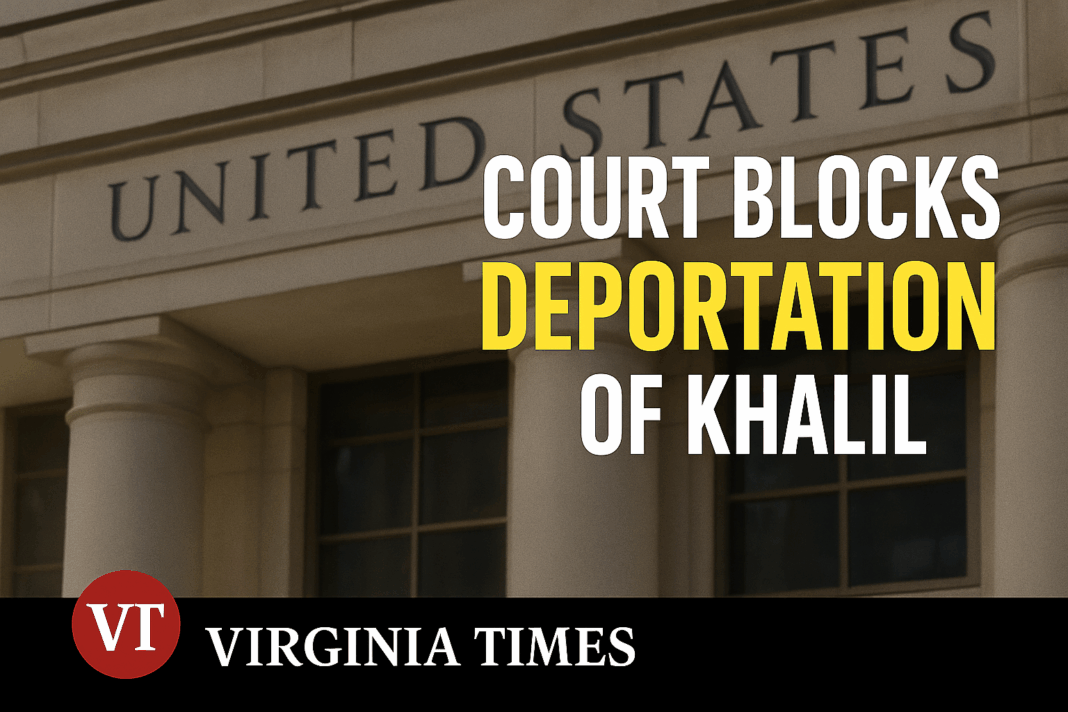Highlights:
- Judge orders Mahmoud Khalil released unless the U.S. appeals by Friday morning.
- He was detained under a vague “foreign policy threat” clause invoked by Secretary Marco Rubio.
- The court found no evidence of violent or fraudulent activity by Khalil.
- The ruling affirms his detention likely violated constitutional protections for free speech.
A federal judge in New Jersey has ordered the release of Mahmoud Khalil, a lawful permanent resident accused of threatening U.S. foreign policy interests due to his pro-Palestinian activism — unless the government appeals by Friday morning. The decision represents a significant setback for the Trump administration’s immigration enforcement strategy, particularly against political dissenters.
The ruling was issued by the U.S. District Court for the District of New Jersey in the case Khalil v. Trump et al., docket number 25-cv-01963.
Targeted Over Views, Not Violence
According to the court, Khalil was detained under a provision invoked by Secretary of State Marco Rubio, who claimed that Khalil’s continued presence in the United States “would compromise a compelling U.S. foreign policy interest.” The judge described the statute as “likely unconstitutionally vague” and found that Khalil had no reasonable way to know that peaceful protest could subject him to deportation.
Government attorneys failed to present any evidence that Khalil had engaged in unlawful, violent, or extremist activity. Instead, the court concluded, he appeared to be targeted for his political expression — protected under the First Amendment.
Attempt to Deport Over Green Card “Omissions” Dismissed
In a secondary argument, federal officials claimed that Khalil had omitted certain biographical details from his green card application. The court, however, determined this was a cover for politically motivated detention.
Expert witnesses testified — without rebuttal from the government — that minor omissions in residency applications almost never lead to detention, especially for long-term residents with no criminal record.
Constitutional Implications and Political Context
This decision comes at a time of heightened scrutiny over the Trump administration’s immigration tactics, particularly in relation to protest movements and Middle East policy. Legal scholars say the ruling could establish a critical precedent for protecting immigrants’ free speech rights against arbitrary executive authority.
Unless the U.S. government files an appeal by Friday, the court’s injunction will go into effect, and Mahmoud Khalil must be released from custody.
A global media for the latest news, entertainment, music fashion, and more.














